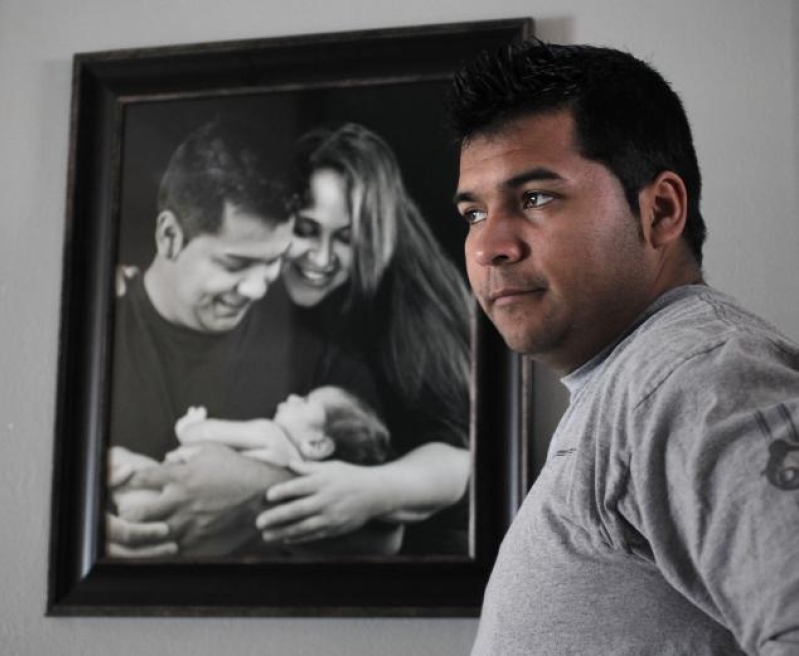
After spending two-months watching his brain-dead pregnant wife lie on her hospital bed, Erick Munoz has his wish granted by a judge to remove life support from his wife, which would also kill the fetus.
According to the Associated Press, Judge R. H. Wallace Jr. made the decision on Friday and gave John Peter Smith Hospital in Fort Worth, Texas until 5 P.M. CST Monday to remove life support.
"I respect JPS' arguments in trying to follow the law," the judge said, "but every section doesn't apply to someone who is dead."
Marlise Munoz, Erick's wife, was 14 weeks pregnant when she was found unconscious on Nov. 26, possibly due to a blood clot.
The family and the hospital both agreed that Marlise Munoz is brain-dead, which means she is dead both medically and under Texas law. They both also agreed that the fetus, which was 14 weeks old when Marlise was first brain-dead, could not be born alive this early in pregnancy.
However, while the hospital states that it has a legal duty to ensure that the fetus remains alive, Munoz argued that his wife did not want to remain in this condition. Moreover, Munoz's attorneys have said medical records show that the fetus is "distinctly abnormal."
Erick Munoz described in the signed affidavit he filed on Thursday how it felt to look at his wife now.
"I have had to endure the pain of watching my wife's dead body be treated as if she were still alive," Munoz wrote. "As a married man, I became very familiar with the way Marlise's body felt, the way her hair smelled, and the way her eyes appeared when we looked at each other among other things. Over these past two months, nothing about my wife indicates she is alive. When I bend down to kiss her forehead, her usual scent is gone, replaced instead with what I can only describe as the smell of death."
The hospital has contended with Munoz's attorneys, stating that there was very little evidence of what the state lawmakers and courts thought of this issue. According to Larry Thompson, a state's attorney representing JPS, the hospital recognized Munoz and his family's pain, but it had a legal responsibility to protect the unborn child.
"There is a life involved," Thompson said. "And the life is an unborn child."
According to a filing made by the hospital, The Advance Directives Act "must convey legislative intent to protect the unborn child. Otherwise the Legislature would have simply allowed a pregnant patient to decide to let her life, and the life of her unborn child, end."
The hospital currently respects the court's decision and said in a statement that they "appreciates the potential impact of the consequences of the order on all parties involved." They are still deciding whether to appeal.
According to the 2010 edition of the BMC Medicine journal, there have been several cases where pregnant women on life support were able to conceive. However, the women in those cases were 22 weeks into pregnancy - far ahead than Marlise Munoz- when their brain deaths occurred. Birth results were available in 12 of those cases and follow-up results were available for 6, all of whom developed normally.







